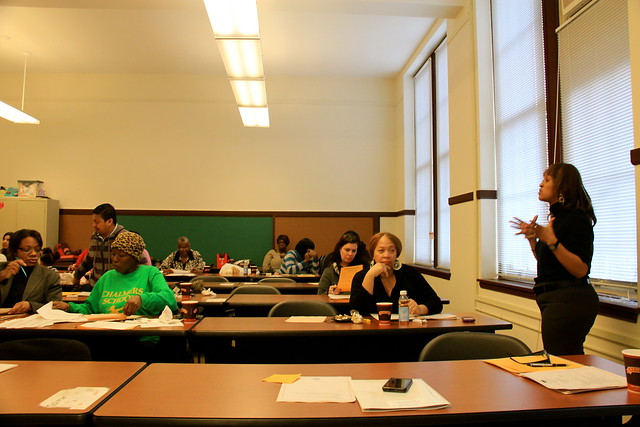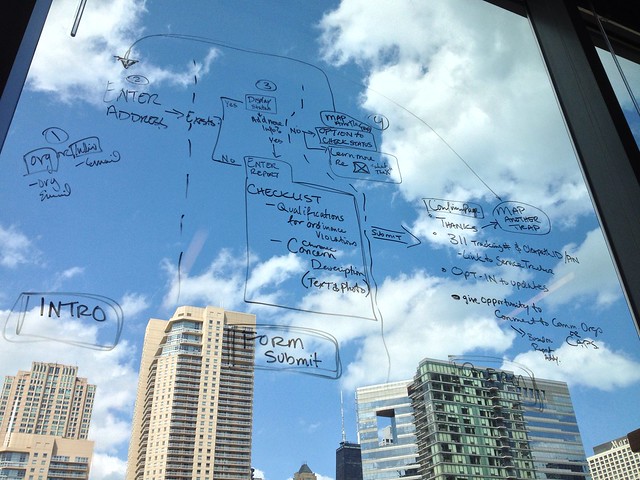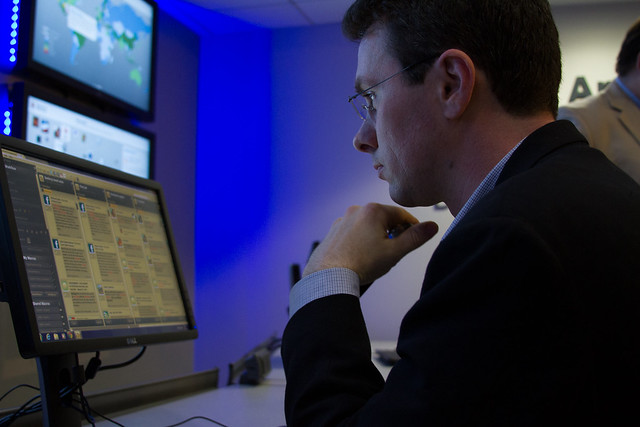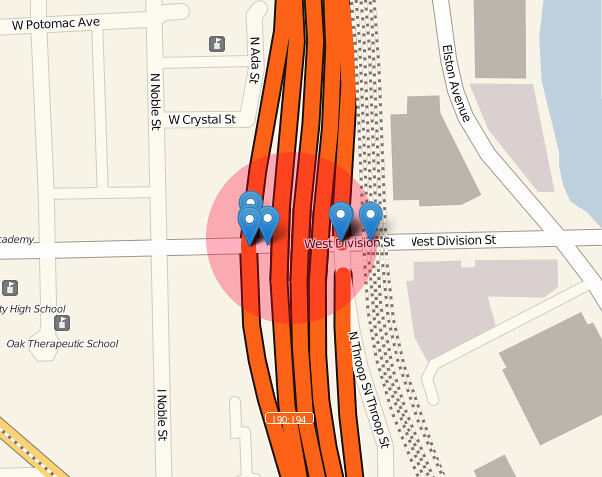Over the last few months I’ve presented the Early Childhood portal to community groups and parent groups focused on Early Childhood. It was always a great experience, and it has really informed how we run the CUTGroup. Tonight in Englewood we’re doing our first user test, so I thought I’d post about these early, formative sessions.
Here’s a look at some of the sessions:
I presented to 37th Ward Alderman Emma Mitts’ regular meeting Block Club leaders on Saturday, Decemeber 2, 2012 (8:30 AM!). People loved the text feature. Out of the 30 people in the room, I had 15 who tested the system at the same time. I learned that people would rather get more information and less results rather than lots of results with limited info.

I made a series of presentations at Zenos Colman Elementary School at 4655 S. Dearborn.

Members of the CPS Head Start Policy Committee gave me great feedback about Spanish language translations, which we then added to the site. I was there for three separate presentations in February 2013.


We also conducted some formal testing of the site. This provided great feedback and real-world experiences, including having your child afoot as you’re searching education options!








